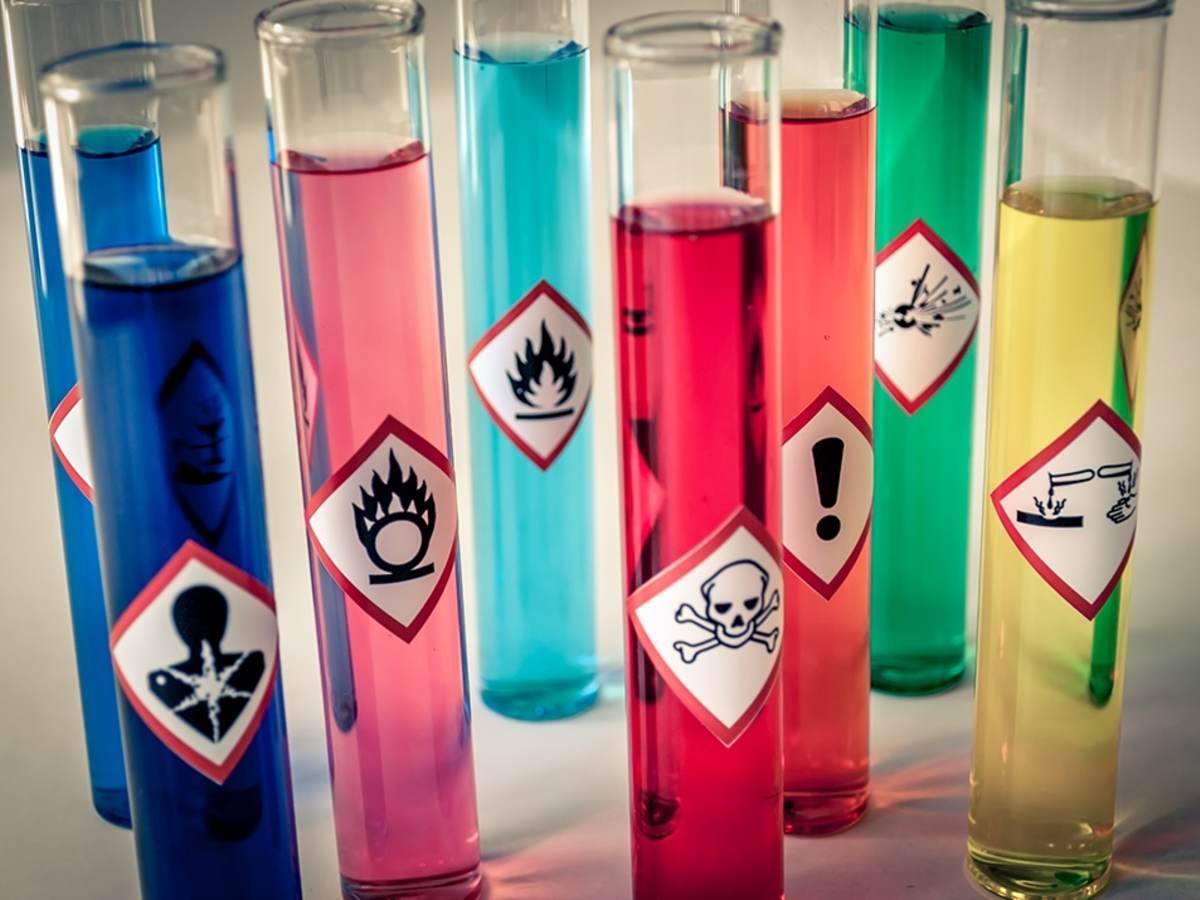February 24, 2023
By Percefoni Doufou-Shafiq, Ph.D., senior regulatory specialist, Supply Chain Team, UL Solutions
Signed into law on Dec. 29, 2022, the Modernization of Cosmetics Regulation Act (MoCRA) brought significant changes to the existing U.S. Cosmetics Regulations which have remained practically unchanged for decades. MoCRA reinforces the role of the Food and Drug Administration (FDA), the competent authority overseeing cosmetic products, and introduces new requirements for manufacturers of cosmetic products.
Brief background on U.S. cosmetics regulations
Before the recent amendment, the Federal Food, Drug and Cosmetics Act (FDCA) had relatively limited requirements for products defined solely as cosmetics and their ingredients (except color additives and a few prohibited/restricted substances) in contrast to other products that are more strictly regulated under the FDCA (e.g. over-the-counter drugs (OTCs)). The FDA could take action against companies and products if, after inspection, they found products to be adulterated or misbranded, but they were not authorized to mandate recalls of such products. In addition, cosmetic manufacturers were not required to register their facilities or give information about their product formulations, and no registration number was required for importing cosmetics into the U.S. The FDA encouraged cosmetic companies to use the Voluntary Cosmetic Registration Program (VCRP) to file product information and register their facilities in the VCRP database. The enactment of MoCRA on Dec. 29, 2022, together with other changes it brings, makes some of these voluntary actions mandatory and enhances the enforcing role of the FDA.
Important changes introduced by the modernization of Cosmetics Regulation Act (MoCRA)
Mandatory Facility Registration and Product Listing – Facilities (establishments that manufacture/process cosmetic products, including importers of cosmetic products) are required to register and provide information on their products (product listing). Exempted from these requirements are, among others, facilities only involved in labeling/packaging with no filling of product containers, retailers, trade shows, and small businesses (unless they manufacture/process certain types of cosmetics prescribed in the Act).
- Facilities are required to register with the FDA within a prescribed timeframe.
- Existing facilities (before MoCRA enactment) are required to register within one year after the date of enactment (deadline Dec. 29, 2023).
- New facilities (established after Dec. 29, 2022) must either register within 60 days of first engaging in the manufacturing/processing of cosmetic products or 60 days after the 1-year registration deadline from the enactment of MoCRA, whichever is later.
- Registered facilities must renew their registration biennially.
- Facilities must submit detailed cosmetic product listings of their products with lists of ingredients including colors, fragrances, and flavors.
- For existing cosmetic products (before the enactment date), the deadline is on or before Dec. 29, 2023.
- For new cosmetic products (after the enactment date), the product listing must be submitted within 120 days of the product entering the market.
- Thereafter, any updates to these listings must be made annually.
Although there is no clear indication in the law document on how the registration of facilities and product listing should take place, given that the FDA already has the VCRP program in place, it is probable that this setup can be used to fulfill the registration and product listing requirements.
Serious adverse event reporting requirements
The responsible person (manufacturer/packer/distributor whose name appears on the label of the product) must submit to the FDA any reported serious adverse effect (e.g. death, significant rashes/burns or any reaction that requires medical intervention) related to the customary use of a product. The submission must be done within 15 days from the time the responsible person received the incident reporting, and any new medical information obtained within 1 year of the initial report submission must be added within 15 days to the initially filed report. Records of these events must be kept for 6 years, except for small businesses that need to maintain such records for 3 years. Fragrance and flavor ingredients suspected by the FDA to have caused or contributed to a reported serious adverse event may be required to be submitted in writing by the responsible person within 30 days of the request.
Product labeling additional requirements
- Cosmetic product labels must include a U.S. contact for reporting adverse effects.
- Fragrance allergens will need to be identified on the product label.
- No specific substances and requirements are included in MoCRA at this time, but the FDA must issue a proposed ruling within 18 months of the enactment date and a final rule within 180 days from the closing of the public comment period (by Dec. 2024). After this date, products that fail to list fragrance allergens on the label will be considered misbranded.
- The type of substances and requirements that will possibly be considered are, among others, those listed in the European Union Cosmetics Regulations.
- Labels for professional use products must have a clear indication that the product is only for professional use.
Safety substantiation, record access, and mandatory recalls
- MoCRA requires manufacturers to maintain records of adequate substantiation of safety for their cosmetic products and ingredients. This includes having tests, studies, analyses, or other evidence considered by qualified and trained experts as sufficient information to support the safety of a product.
- Any records and other information pertaining to the products must be made available upon request by an FDA designated officer, including when facility inspections take place.
- The FDA has the authority to issue mandatory recalls for cosmetic products determined to be adulterated or misbranded that can cause serious health effects and can suspend the facility’s registration thus preventing the facility from operating.
PFAS and talc in cosmetics
- The FDA must assess the safety of perfluoroalkyl and polyfluoroalkyl substances (PFAS) in cosmetic products and provide, no later than the end of Dec. 2025, a publication on the FDA website with a summary of results.
- MoCRA requires the FDA to establish regulations and asbestos detecting methods for talc-containing products. The FDA has a period of 1 year from enactment of the Act to propose these regulations and must issue final regulations 180 days after the end of public comment period.
Other provisions
The FDA must issue proposed rulings by the end of 2024 regarding the establishment of good manufacturing practices (GMP) for facilities. The GMPs should reflect appropriate expert, national and international standards but avoid undue economic burden. In addition, based on the clause of preemption, MoCRA supersedes any state or local laws that differ with regards to registration, product listing, GMP, records, recalls, adverse event reporting or safety substantiation. Finally, the new legislation mentions that Congress is of the opinion that animal testing for cosmetic product safety should eventually be phased out, but there is no concrete information how and when this may proceed.
Recommended action items
- In preparation for meeting the registration and product listing deadlines, it is important to review your company’s products and pay attention to items that will now come under heavier scrutiny by the FDA such as safety substantiations, record keeping, adverse event reports, and manufacturing practices.
- It is imperative for compliance to keep up with the FDA’s rolling schedule of final rulings on items such as fragrance allergens, GMPs, and asbestos testing in talc-containing products.
Sources
Modernization of Cosmetics Regulation Act of 2022
FDA - Cosmetics
Regulatory Roundup Newsletter
Never miss an update
UL, the global safety science leader, can keep you updated on the latest events with a variety of materials, ranging from the latest regulatory news, webinars, white papers, events, industry insights and more.
Subscribe to our monthly Regulatory Roundup Newsletter and stay up to date on current and upcoming regulations and all the latest chemical industry news.
Safety Data Sheet (SDS) Authoring and Labeling Services
Create, maintain and distribute comprehensive SDSs and labels to meet your increasingly complex global compliance requirements.
Chemical Regulatory Compliance
Manage your chemical compliance needs with the help of global regulatory expertise and leading resources.
Chemical Compliance Training
We provide a series of chemical regulatory training programs designed to help understand the diverse set of requirements and how to confront them.
Get connected with our sales team
Thanks for your interest in our products and services. Let's collect some information so we can connect you with the right person.





